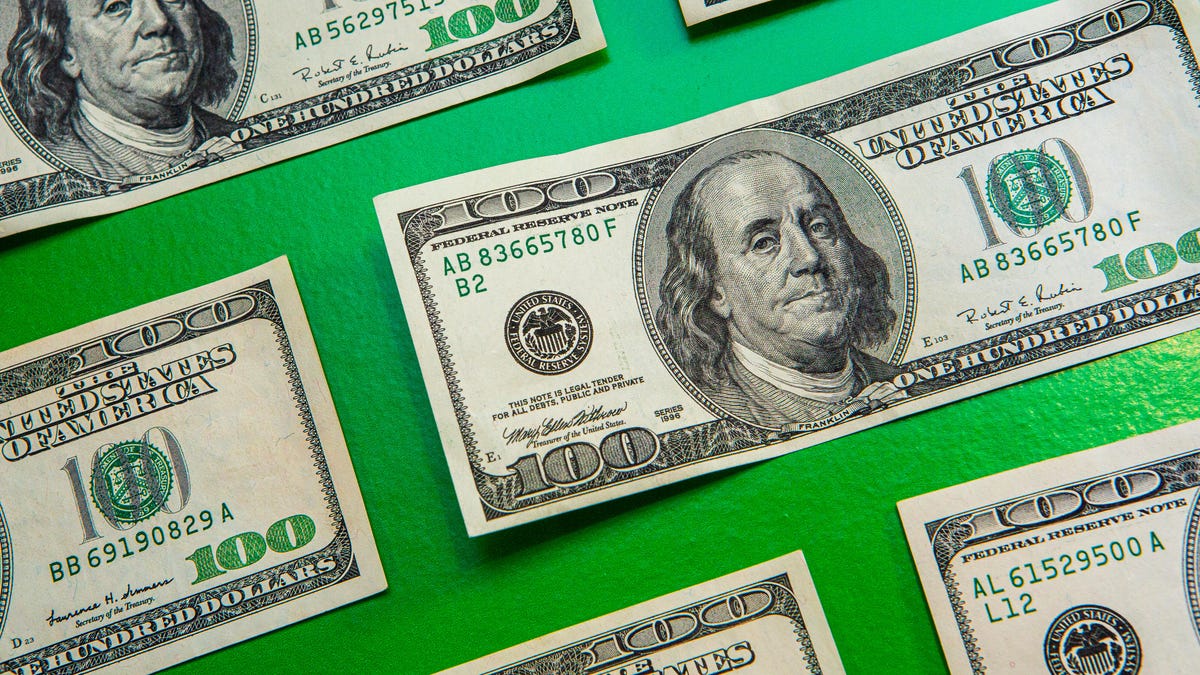 Why You Can Trust CNET
Why You Can Trust CNET Advertiser Disclosure
Inflation Isn't Slowing Down. I Bonds and Other Savings Strategies Can Help Stretch Your Dollar
These alternative savings accounts offer higher-than-average rates -- some well over the rate of inflation.

With inflation sitting at a new 40-year high of 8.6%, finding ways to maximize your savings is more important than ever. As interest rates rise, increasing the cost of borrowing, there's a small silver lining -- savings account rates are also rising.
Storing your money in a traditional bank account that earns close to 0% in interest may actually mean losing money. If you placed $100 in savings last year, after taking into account the current 8.6% jump in inflation and the current average savings account rate of 0.08%, that same $100 is worth slightly less today.
To be clear, your $100 is still sitting there safe and sound, but thanks to inflation, the value of each dollar is now less.
So, what can you do? Are there relatively low-risk ways to save to earn higher rates of return? Yes. Here are four strategies that can help minimize the impact of inflation on your savings.
1. Go with an I bond
I bonds are a relatively secure government-backed investment sold directly to the public that tracks your cash alongside inflation.
The current I bond savings rate is over 9.5% and is calculated using a fixed rate and an inflation rate that's determined twice a year. These accounts are not as liquid as bank savings accounts. You have to stick with the account for at least one year. While you can withdraw your money after that, you risk forfeiting the final three month's of earned interest by doing so. After five years, you can take your money out without penalty.
Pro tip: Park cash here that you plan to use for medium-term savings like a home down payment you foresee needing in the next five years. Keep in mind that the limit is $10,000 per year. Any money you won't need for five years or more may be able to afford more risk and might make sense to invest in the stock market.
2. Stash your money in a high-yield savings account
Some newer, digital-only financial institutions or neobanks are offering higher interest rates of 2% to 4% on high-yield savings accounts. These rates aren't outpacing inflation but they are well above the 0.08% average.For example, Current announced earlier this year a new high-yield savings account called "Interest" that provides users a 4% annual percentage yield.
Pro tip: Consider these types of accounts for a savings goal in the next six to twelve months. Be careful parking your emergency funds here, as neobanks tend to be part of limited ATM networks and your money may be harder to access in a pinch. Also, make sure the neobank has FDIC insurance that can protect your savings in case the institution goes under.
3. Opt for bank accounts with sign-up bonuses
In an effort to lure new customers in today's competitive market, some banks are offering sign-on bonuses and "welcome" perks for new checking account customers. For example, the Chase Total Checking account provides a $200 account bonus when you fund a new account via direct deposit.
Pro tip: Be sure to follow any rules related to account minimum auto-deposits to avoid monthly fees. If you can't meet these minimums, then the signup bonus may not be worth the cost of maintaining this account.
4. Don't overlook Treasury Inflation Protected Securities
Finally, TIPS are a popular bond instrument during periods of high inflation because its value follows the rate of inflation and adjusts twice a year.
As a government-backed bond, your investment will never lose its original value, even if inflation goes in the other direction.
TIPS are usually an add-on to retirement portfolios but you can avoid transaction costs by buying them directly from the U.S. Treasury Department's website in five-, 10- and 20-year maturities.
Pro tip: Go easy. Leave your emergency savings in an FDIC-insured savings account that's super liquid and accessible. Consider TIPS only for some of your additional savings that you don't anticipate needing for at least five years.

